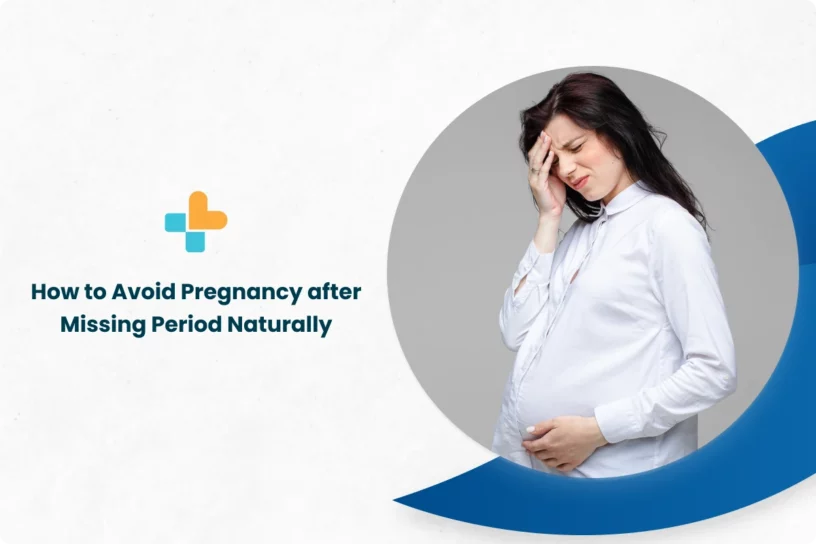While there is no foolproof natural way to avoid pregnancy after missing a period, there are several methods that can be explored to reduce the risk of pregnancy. These methods involve gaining knowledge of one’s menstrual cycle and using non-invasive, natural techniques for contraception. It is essential to approach pregnancy prevention with a positive mindset and to seek guidance from a healthcare professional to determine the best course of action based on individual needs and circumstances.
Understanding the Fertility Cycle
The fertility cycle refers to the monthly hormonal changes and physiological processes that occur in a woman’s body in preparation for pregnancy. It typically lasts around 28 days, but can vary from person to person. Understanding the different phases of the fertility cycle, including the menstrual, follicular, and luteal phases, can help individuals better understand their reproductive health and plan for pregnancy or contraception.
The cycle has three main phases:
- Menstrual phase: The first phase of the fertility cycle, characterized by the shedding of the uterine lining and the release of blood from the vagina.
- Follicular phase: The second phase of the fertility cycle, marked by the development and maturation of follicles in the ovaries, which release eggs.
- Luteal phase: The final phase of the fertility cycle, marked by the formation of the corpus luteum and the release of hormones to prepare the uterus for possible implantation of a fertilized egg.
Natural Methods to Avoid Pregnancy
Natural methods of contraception refer to non-invasive techniques for preventing pregnancy that do not involve the use of hormonal contraceptives or other medical devices. These methods include techniques such as tracking the menstrual cycle, monitoring basal body temperature, and observing changes in cervical mucus.
- Natural Family Planning Methods: These refer to non-invasive techniques for avoiding pregnancy that involve tracking one’s menstrual cycle and observing changes in cervical mucus and basal body temperature.
- Emergency Contraception: In cases where unprotected sex occurs, emergency contraception can be used as a backup method to prevent pregnancy. These methods are typically hormonal, and must be taken within a specific time frame after intercourse.
- Home Remedies: Some natural remedies, such as consuming certain herbs or spices, have been traditionally used for birth control purposes. However, it is important to note that the effectiveness of these remedies has not been scientifically proven.
- Herbal Birth Control Methods: Certain herbs, such as pennyroyal and wild carrot seed, have been suggested as potential natural birth control methods. However, it is important to note that the safety and effectiveness of these methods has not been fully researched.
- Lifestyle Changes: Some lifestyle factors, such as maintaining a healthy weight and reducing stress, can impact fertility and potentially help to prevent pregnancy. However, these methods may not be reliable on their own and should not be relied on as the sole method of contraception.
Natural Family Planning Methods
Natural Family Planning (NFP) refers to a set of fertility awareness-based methods that can be used to avoid pregnancy without the use of hormonal contraceptives or other medical devices. These methods involve tracking the menstrual cycle, monitoring basal body temperature, and observing changes in cervical mucus to identify the most fertile days of the cycle. By abstaining from intercourse during these fertile periods, individuals can reduce the likelihood of pregnancy. While NFP can be effective, it requires consistent and accurate monitoring and may not be suitable for everyone. It is important to discuss NFP methods with a healthcare professional to determine the best options for individual needs and circumstances.
Emergency Contraception
Emergency contraception (EC) refers to methods of contraception that can be used after unprotected sexual intercourse to prevent pregnancy. EC can consist of hormonal methods, such as the morning-after pill, or non-hormonal methods, such as the copper intrauterine device (IUD). The effectiveness of EC depends on the method used and the timing of use after intercourse. It is important to note that EC is not intended to be used as a regular method of contraception and should only be used in emergency situations. Individuals should speak with a healthcare professional to determine the best options for emergency contraception based on individual needs and circumstances.
Home Remedies to Avoid Pregnancy
- Home remedies for contraception are non-medical techniques that involve the use of natural ingredients.
- Some natural remedies for contraception include consuming certain fruits, vegetables, or herbs that have contraceptive properties.
- While the effectiveness of these remedies has not been scientifically proven, they may offer a natural and low-cost alternative to traditional methods of contraception.
- Some examples of fruits and vegetables that are thought to have contraceptive properties include:
- Papaya
- Pineapple
- Ginger
- Fennel
- Carrots
- Sweet potatoes
- Some examples of herbs that are believed to have contraceptive effects include:
- Pennyroyal
- Neem
- Queen Anne’s lace
- Cotton root bark
- While these remedies may have potential contraceptive properties, it is important to note that they are not a substitute for medically-proven methods of contraception, and they may not be reliable on their own.
Herbal Birth Control Methods
- Herbal birth control methods involve the use of natural plants and herbs to prevent pregnancy.
- The effectiveness of these methods varies, and they may not be as reliable as medically-proven methods of contraception.
- Some herbs that are believed to have contraceptive properties include:
- Pennyroyal: It is an herb that has been traditionally used as an abortifacient and to prevent pregnancy. However, it can be toxic and may cause serious side effects. It is not recommended for use as a contraceptive.
- Neem: It is a tree whose leaves and bark have been used for centuries as a natural contraceptive. Neem oil has been shown to have spermicidal properties, and neem supplements may help to reduce fertility.
- Queen Anne’s Lace: Also known as wild carrot, the seeds of this plant have been used as a natural contraceptive for centuries. The seeds contain a compound that may prevent implantation of a fertilized egg.
- Dong Quai: This herb is used in traditional Chinese medicine as a natural contraceptive. It is believed to affect estrogen levels in the body, which can help to prevent pregnancy.
Changes to Diet and Lifestyle
Changes to diet and lifestyle can play a significant role in fertility and may help to reduce the risk of pregnancy. Some dietary and lifestyle changes that can help prevent pregnancy include:
- Eating a balanced diet: A healthy diet rich in fruits, vegetables, whole grains, and lean proteins can help to maintain hormonal balance and improve overall health, which may reduce the risk of pregnancy.
- Avoiding alcohol and smoking: Both alcohol and smoking can have negative effects on fertility and can increase the risk of pregnancy. It is recommended to avoid or limit alcohol and quit smoking to improve fertility.
- Maintaining a healthy weight: Being overweight or underweight can have a negative impact on fertility and may increase the risk of pregnancy. Maintaining a healthy weight through diet and exercise can help to improve fertility and reduce the risk of pregnancy.
- Practicing safe sex: Using condoms or other forms of contraception can help to prevent pregnancy and reduce the risk of sexually transmitted infections.
- Stress reduction: Stress can have a negative impact on fertility and may increase the risk of pregnancy. Practicing relaxation techniques such as meditation, yoga, or deep breathing can help to reduce stress and improve fertility.
When to Consult a Gynaecologist?
It is important to note that while these lifestyle changes can be beneficial for overall health and fertility, they may not be effective as the sole method of contraception. It is always recommended to discuss contraceptive options with a healthcare professional to determine the best methods for individual needs and circumstances.
Women should consult a gynecologist for annual check-ups, pregnancy planning, menstrual problems, sexual health concerns, menopause symptoms, pelvic pain, and breast exams. Regular exams and screenings are recommended for maintaining reproductive health.
Takeaway
It is understandable for individuals to feel anxious about the possibility of pregnancy when experiencing missed periods and engaging in sexual intercourse. However, there are natural methods available to prevent pregnancy, such as utilizing herbal birth control, implementing changes to one’s diet and lifestyle, and keeping track of the menstrual cycle.
If you are concerned about pregnancy and have missed periods, it is crucial to take a pregnancy test to confirm your pregnancy status and seek medical advice if the result is positive.
Additionally, Ayu Health as a network of hospitals with top specialists and is highly recommended for medical assistance.
Our Hospital Locations
Gynaecology Surgery Hospitals in Chandigarh | Gynaecology Surgery Hospitals in Bangalore | Gynaecology Surgery Hospitals in Jaipur | Gynaecology Surgery Hospitals in NCR | Gynaecology Surgery Hospitals in Hyderabad
Our Doctors
Gynaecology Surgery Doctors in Chandigarh | Gynaecology Surgery Doctors in Bangalore | Gynaecology Surgery Doctors in Jaipur | Gynaecology Surgery Doctors in NCR | Gynaecology Surgery Doctors in Hyderabad
About the Author





